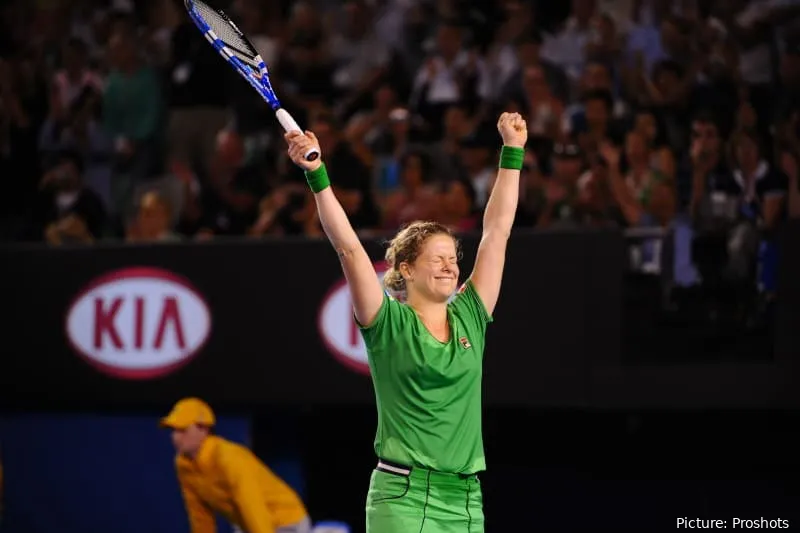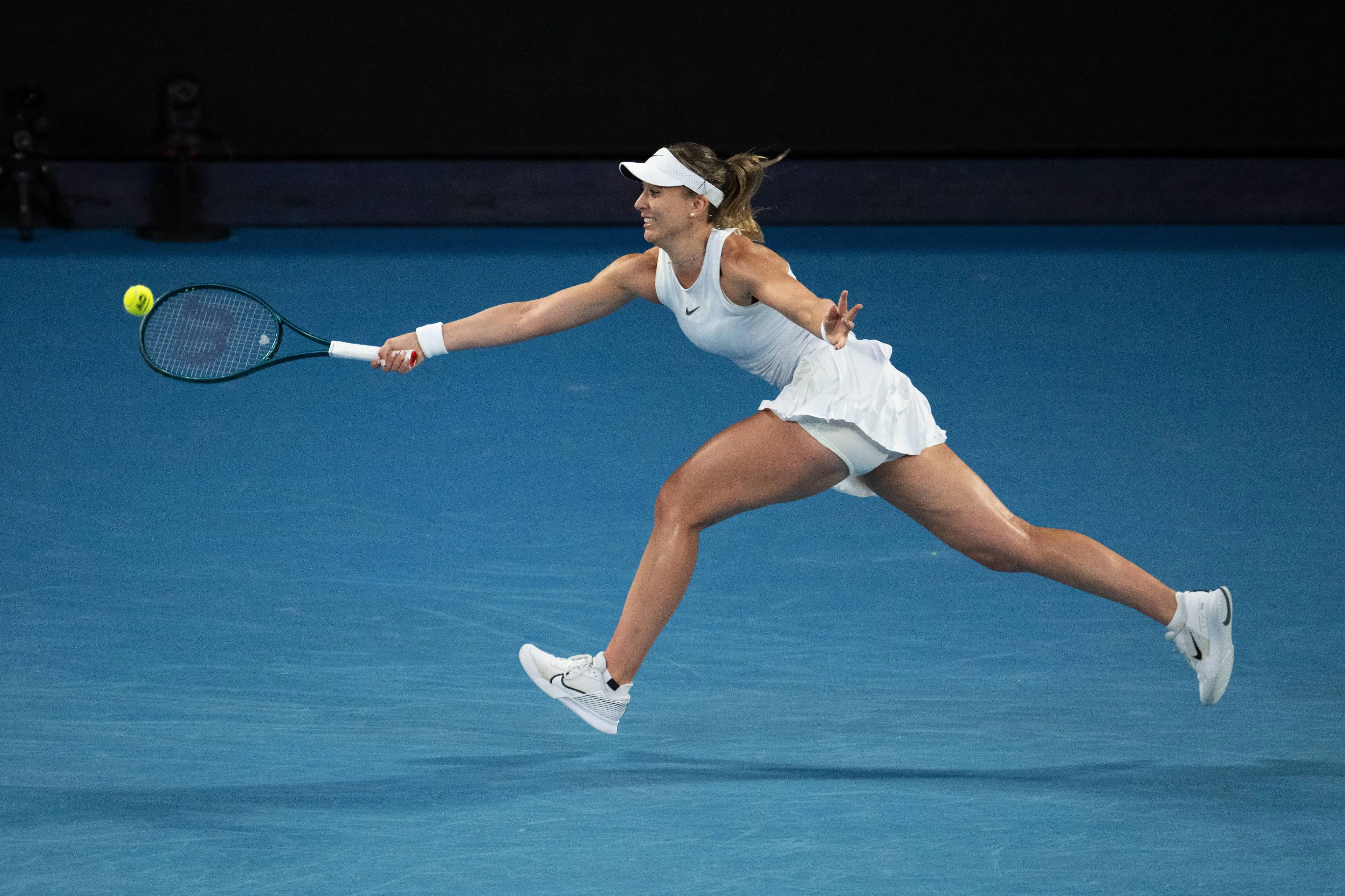Andy Roddick and Kim Clijsters remember their era: The mind games, the competitiveness and... David Ferrer's anecdotes
Tennis NewsWednesday, 26 March 2025 at 15:35

In the modern era of tennis, Carlos Alcaraz openly discusses his uncertainties and Naomi Osaka shares her struggles with anxiety. This starkly contrasts the earlier times highlighted by Kim Clijsters and Andy Roddick on their podcast "Served." They reminisced about an era when showing vulnerability was considered a weakness. The podcast episode, filled with laughter and anecdotes, delved into the mental tactics of their playing days, the increased visibility of modern tennis players, and David Ferrer's remarkable physical feats.
Reflecting on the past, Roddick and Clijsters thrived in an era teeming with players who would later become absolute legends of the sport. Roger Federer, Serena Williams, Justine Henin, and Rafael Nadal are some of the players against whom the American and Belgian had to compete week in and week out. Competing back then also meant maintaining an image of greater coolness, striving not to give any kind of signal to the opponent that could allow them to take control of the game.
Read also
Differences in mentality, different times
Clijsters, a formidable rival of 23-time Grand Slam champion Serena Williams, noted that mind games and attitude played a significant role:
"I was hiding my breath so Serena wouldn't notice I was dead," the Belgian said. Her rivalry with the younger Williams culminated in clear dominance by Serena, who won seven of the nine matches played between them.
"Playing against Serena, after a long rally, I was holding my breath during side changes. I didn't want her to see that I was exhausted. If I noticed she was suffering, I'd think: 'Yeah, I've got it!' But we would never admit it. In my day, you discussed doubts only with your coach. Now, players like Osaka or Alcaraz share it publicly. It's good to connect, but... Doesn't it take away that aura of invincibility?" the three-time US Open winner ignited the debate.
"I was a professional liar. If my coach told me, 'You were nervous the first four games,' I denied everything. But it was obvious! Today, if Alcaraz says 'I feel insecure,' the media amplifies it. As a fan, I like his authenticity, but on his team, they surely think, 'Boy, don't give them ammunition!' We would erase the bad stuff fast—one mistake? 'Forget it, next point!' " the former world No. 1 said."
Now serving as a TV commentator, the Belgian tennis player observes details in attitudes and gestures that she used to overlook: "Now, from the outside, I see things that I didn't notice before: facial expressions, how they turn their heads... Before, on the court, I focused only on my game. But yes, if you see an opponent hesitate, that's when you have to up the intensity."
Read also
Is Vulnerability a Burden in Tennis?
Kim Clijsters reflects on the generational shift in attitudes toward mental health in tennis. "Naomi Osaka has bravely opened the door by discussing her mental health struggles, drawing fans closer yet attracting scrutiny. In my era, expressing doubts marked you as weak. Today, while the approach is different, I'm uncertain if it's better. How much should one reveal about their vulnerabilities?" she muses.
Clijsters also points out the potential downside of this openness: "Often, revealing your struggles leads to relentless focus on them, hindering your ability to move past and 'turn the page,'" she observes.
Andy Roddick adds to the discussion by emphasizing the psychological aspect of tennis, "Tennis is not just physical but intensely psychological. For instance, if Ferrer ran 10 km after a match, it built a myth around him. Now, when Alcaraz shares his fears, could this perception be used against him? It's a delicate balance to maintain."
Read also
Differences in Match Formats and Mental Challenges
Discussing the different demands of three-set versus five-set matches, Roddick highlights the psychological and physical challenges: "The dynamics change drastically. Losing the first set in a three-set match is tough, but knowing you might still have over two hours left in a five-set match can be daunting."
He also shares his experiences playing against David Ferrer: "Losing the first set to Ferrer was particularly crushing because you knew you were in for a long, grueling match."
Clijsters recalls Ferrer’s extraordinary stamina, "Seeing him run after playing a marathon five-set match was truly intimidating. It felt like his physical and mental resilience was meant to break you down."

The Psychological Warfare in Tennis
Roddick reminisces about the mental strategies employed by tennis legends like Jimmy Connors, who would manipulate perceptions to gain a psychological edge. "Connors would stage training sessions in public to fuel rumors of his fitness, all part of the mind games that are central to tennis," he explains.
In tennis, the interplay between projecting strength and admitting vulnerability forms a complex strategy that players navigate continually. The sport demands not just physical excellence but also a mastery of psychological tactics, where each player's public persona can significantly impact their on-court performance.
claps 0visitors 0
Just In
Popular News
Latest Comments
- Dubai can suck it up like everyone else. Just because they think they run the show, they do not. Sportswashing does not give them Power.
- You're losing your mind here.. You use a lot of space, yet inadequate knowledge. Read the WTA Rule Book 2026; it answers all your questions and accusations.
- Why single out Iga and Aryna to punish?, Since when do players get punish because they withdraw from tournaments? Maybe if they both were treated like number one and two players, they would not have this problem. The WTA discriminates against them because of their nationalities, yet they want to make money off them. Every tournament, Iga has harder draws than qualifiers from the beginning to the end. In the Australian Open they stuck Aryna out in the sun the majority of her matches in order to tire her out. She is the number one player in the world and she never got the opportunity to play with the roof closed. If they want these top players to continue playing and making money for them, then they should treat them as such. Otherwise, get the players who they are always giving out cupcake draws to like Pegula to play their tournaments. Lets see how many seats in the audience she will fill. Iga has more fans in the seats than any player in the WTA, yet she is always disrespected and mistreated because of her nationality. The WTA is a corrupt, bias and racist organization. No matter what job someone is on, you cannot tell them that they are not sick or injured.
- LOL. Billie Jean King hates being a woman.
- Pulling out a tournament is not illegal. Therefore, that is no problem. Maybe they need more rest.
- It is simple. If you do not want cameras following you, get away from tennis and go find another job. Cameras and interviews are a part of the job. They do not mind cameras when they are winning. If the women tennis players would put the same amount energy to playing tennis as they do with complaints, women tennis would be exciting to watch.
- Yeah, that's what I would do... be nice and lose a match
- Turns out Swiatek is as big a cheater as Draper (remember vs FAA?)when she didn’t admit to hitting a double bounce drop shot. The blind chair ump didn't even see it on the replay but fortunately got the correct call from someone on the phone (supervisor?) we all saw it…..it wasn’t even a close call. Great win Sakkari !!
- The women could barely play the best 2 out of 3 sets. Yet, they are always complaining about equal prize money. Equal pay means Equal work.
- What a dump!!
Loading









